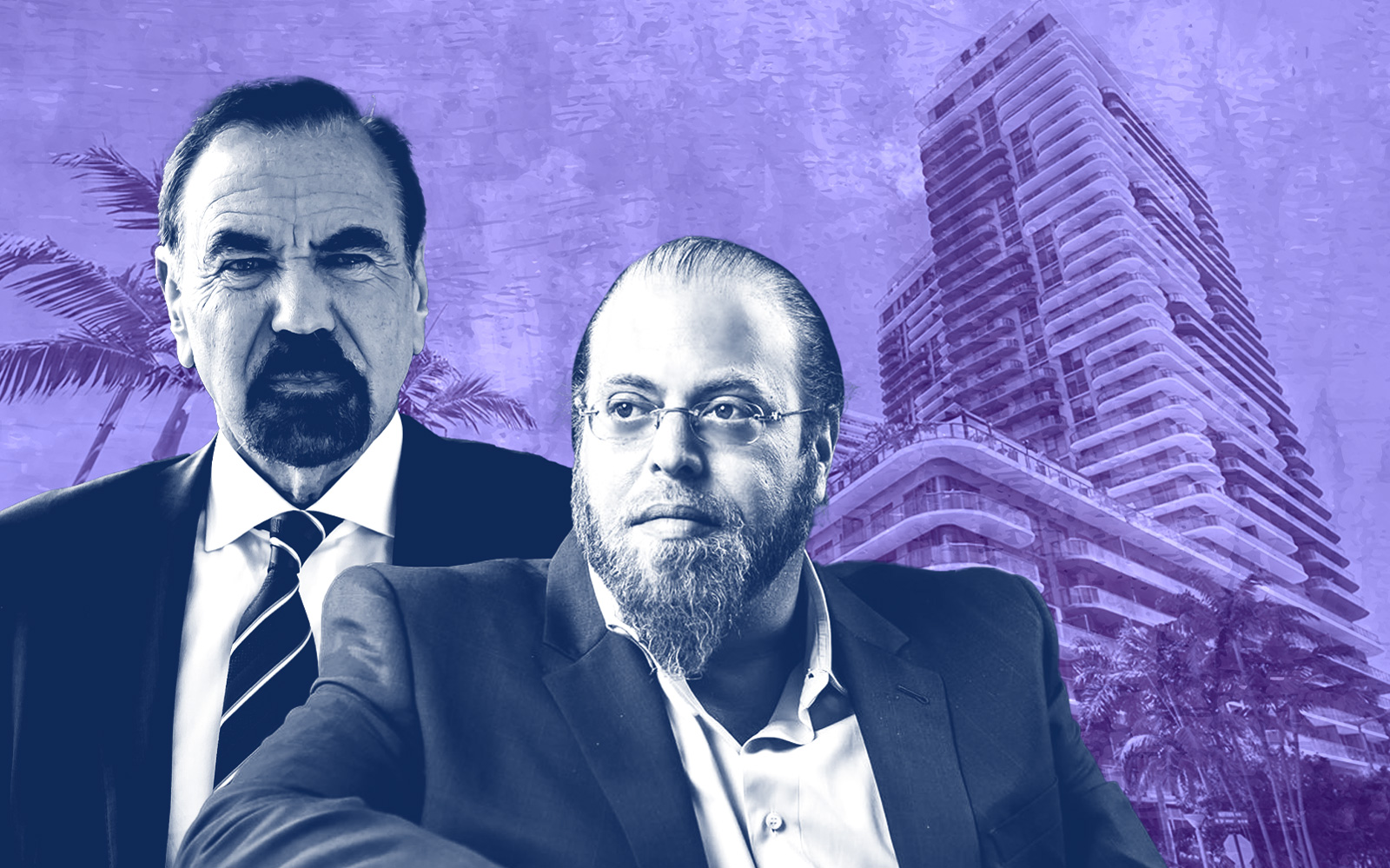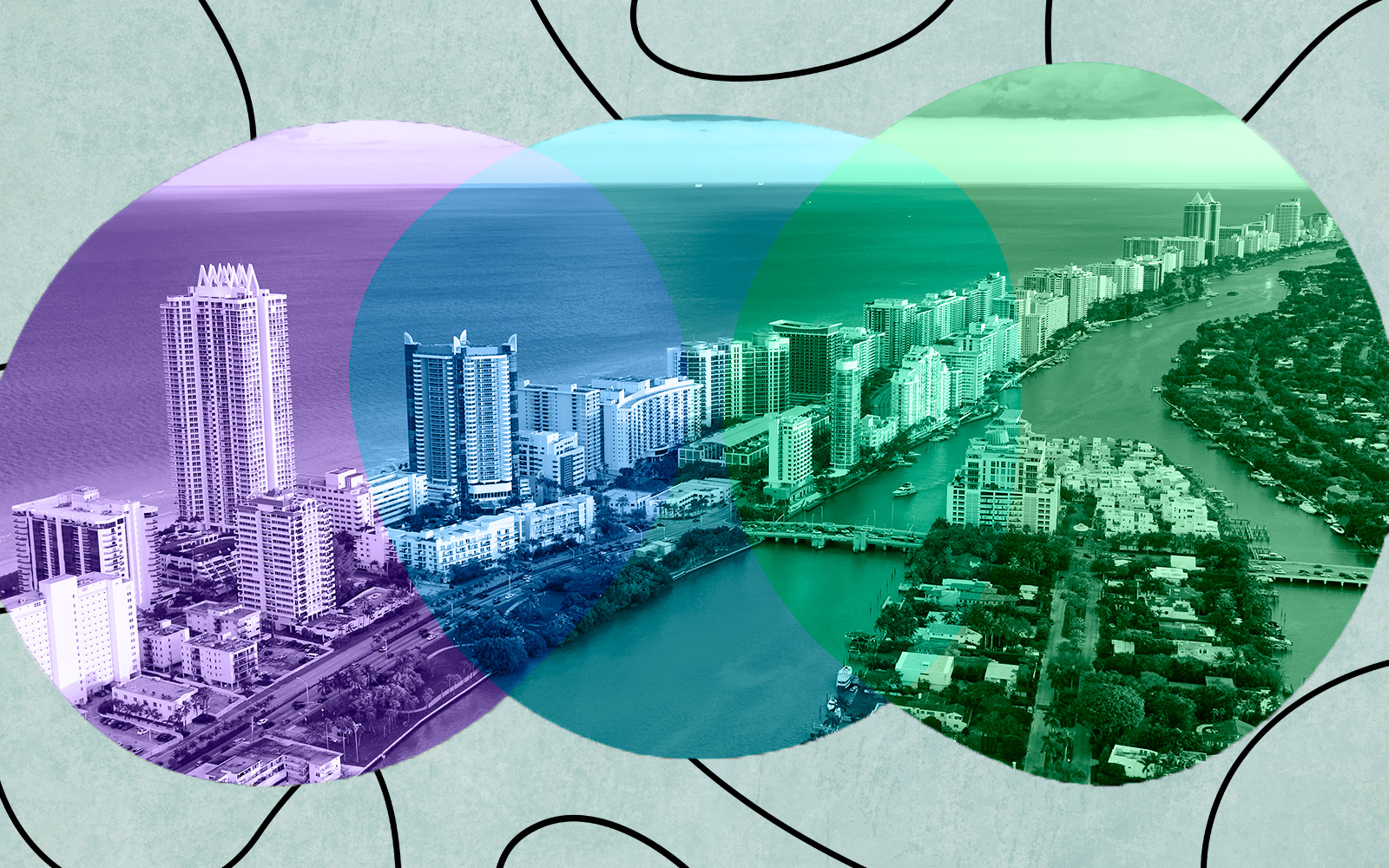UPDATED, April 14, 6 p.m.:
More than 16 years after buying a five-story commercial space at the bayfront Miami condo Blue, the Atlanta-based owner is one step closer to gaining access to basic utilities that would make it operational — including central air conditioning, a must in South Florida.
An affiliate of Goddard Investment Group, Blue Grouper Ventures, won at jury trial more than $1 million in damages in its lawsuit against the Blue Condominium Association earlier this month.
The commercial condo owner alleged that the association refused to provide utilities that include an HVAC connection, plumbing, water, garbage, recycling and more for its units at 601 Northeast 36th Street, at the northern edge of Miami’s Edgewater neighborhood.
Goddard was created in 2000 by Robert C. Goddard III, and has acquired and managed more than 11 million square feet of commercial space since then, according to a website for one of its properties.
It’s unclear how the Blue condo association will pay the damages, whether through an insurance claim, an assessment levied on unit owners, or another method. The Goddard entity also expects to collect more than $500,000 in attorneys’ fees, according to its lawyer.
“They haven’t been able to use the property since 2006 because they haven’t had those basic utilities,” said Jose Ferrer, Blue Grouper Ventures’ attorney. Ferrer, a lawyer with Miami-based Mark Migdal & Hayden, said his client could sell the units or rent out the spaces.
The Goddard entity paid about $2.3 million for the two commercial units totaling 12,000 square feet in late 2006. Miami-based Hyperion Development completed the 35-story, roughly 330-unit tower a year earlier. The curved building, designed by Arquitectonica, sits at the entrance to I-195.
In its suit, Blue Grouper Ventures also accused Blue’s condo association of trespassing by using the commercial units’ parking spaces and storage units; neglecting maintenance that resulted in chronic leaking; and of refusing to allow the condo owner use of the common spaces, among other things. The complaint, filed in Miami-Dade Circuit Court in 2021, alleged that the association was renting out Blue Grouper Ventures’ parking spaces and storage.
The association’s attorney, Cody German, said the verdict was “a tiny fraction” of the nearly $6 million in damages that Blue Grouper Ventures sought. He declined to comment regarding how the association will pay the damages. The nearly $6 million refers to about $4.8 million in lost rental profits and $1 million in remediation costs, according to a court filing.
German, a partner with Miami-based Cole, Scott & Kissane, said the verdict was “remarkably better than any prior options presented to Blue Condominium,” and that Blue Grouper won “on only one of its many claims.”
The jury found that the association breached the condo declaration, causing about $1 million in damages, and that the association trespassed on Blue Grouper’s property by using its parking spaces and storage without the owner’s consent. The jury also found that the association was not unjustly enriched by Blue Grouper paying its share of the common expenses.
In the 2021 complaint, Blue Grouper also alleged that the association refused to provide full access to the association’s files, including a structural engineer’s report that allegedly had information about a building defect regarding the building’s post-tension system. Causeway Towers, the Hyperion entity that developed the tower, was involved in a handful of lawsuits from 2004 to 2007, including one against Arquitectonica, but the complaints are not available online.
Read more



Ferrer said his client had been working with the association since 2014 to come to an agreement, but that every time the board members would change, Blue Grouper would have to start all over again.
“It’s important for all of the unit owners to be involved in condominium association board’s business. For years, my client was trying to work with the condo association … without litigation,” he said. “Get informed because at the end of the day you might end up with a big tab as a result of something you [unit owners] didn’t do.”
